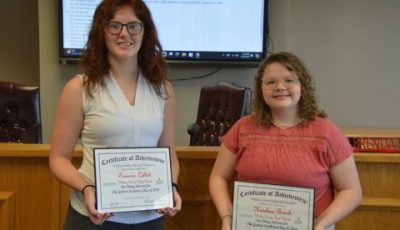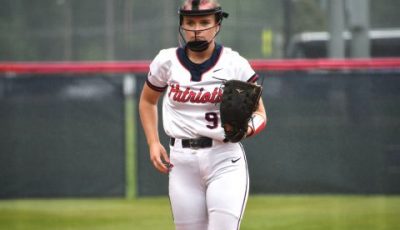Industrial Maintenance Pathway could bring Vo-Ag changes to WCHS
What skills can our local high school students learn today that will give them a leg up on finding good, high-paying jobs in the future? What skill sets do local industries need students to learn so that their future workforce needs will be met?
One of the answers Whitley County Superintendent John Siler has come up is the implementation of an Industrial Maintenance Pathway for students at Whitley County High School, which would afford them the opportunity to gain skills in electronics, robotics, Programmable Logic Controllers (PLC’s), equipment calibration, etc.
“These are some of the skills necessary for gainful employment in our local manufacturing and production plants. According to KYSTATS.KY.GOV, there will be 2,602 employment opportunities in production occupations over the next five years for the Cumberlands Local Workforce area,” Siler said in a letter to faculty and staff that was released to the public Monday afternoon via the district’s app.
“After talking to the local manufacturing and production plants that I have spoken to, that particular pathway of industrial maintenance seems to line up with the skills needed at most of these plants,” Siler added during an interview late Monday afternoon.
Based upon the letter Siler released Monday, it appears that this new career pathway will likely come via changes in the vocational-agriculture program, which Siler emphasized he isn’t looking to eliminate.
“There has been much discussion lately concerning some possible changes to the Whitley County High School Vo-Ag Program,” Siler said at the start of the letter. “First, no part of my vision for Whitley County students is to terminate Future Farmers of America (FFA) co-curricular activities. Furthermore, the Vocational Agricultural Program will still be a vital part of Whitley County High School. I want to provide every opportunity for all students; therefore, other career pathway offerings must be considered. Decisions to restructure are not taken lightly. Decisions are made after extensive data research, discussions with community partners, and doing what is best for our students.”
One future change to the vocational-agriculture program could be making horticulture/green house program an after school club rather than a class depending on staffing levels, Siler acknowledged.
How soon this new pathway is implemented remains to be seen.
“Nothing is a definite right now,” Siler said in the interview. “We are just looking and talking to local industry, these different manufacturers and what do they need. What skills are they looking for in their workers and then what trade can we bring into our school that would equip our kids with those skills that they are needing in our local industry to build our local economy and build the local community.”
Siler said the changes depend upon funding and other factors.
For instance, Siler doesn’t know what the plans of teachers are so he can’t say how long it will be until there is an opening so the Industrial Maintenance Pathway could be implemented.
“When we have the opportunity to hire new staff, we have to adjust for the needs of our local manufacturers, and the people, who are employing here locally? What skill sets do they need their employees to have? We have to adjust and accommodate their needs, that way our kids will have the skills needed for the jobs to be employed. Then our local industries grow, which hopefully bring more jobs in,” Siler said.
Currently, Whitley County High School offers pathways in two top five high demand industry sectors: business and IT services and health science. The Allied Health Pathway was added this year as another opportunity for students.
“Advanced Manufacturing is another top five industry sector, and by adding an Industrial Maintenance Career Pathway our students would have another opportunity for certification in a top five industry sector. This would give Whitley County High School pathways in three of the top five industry sectors,” Siler added in the letter.








